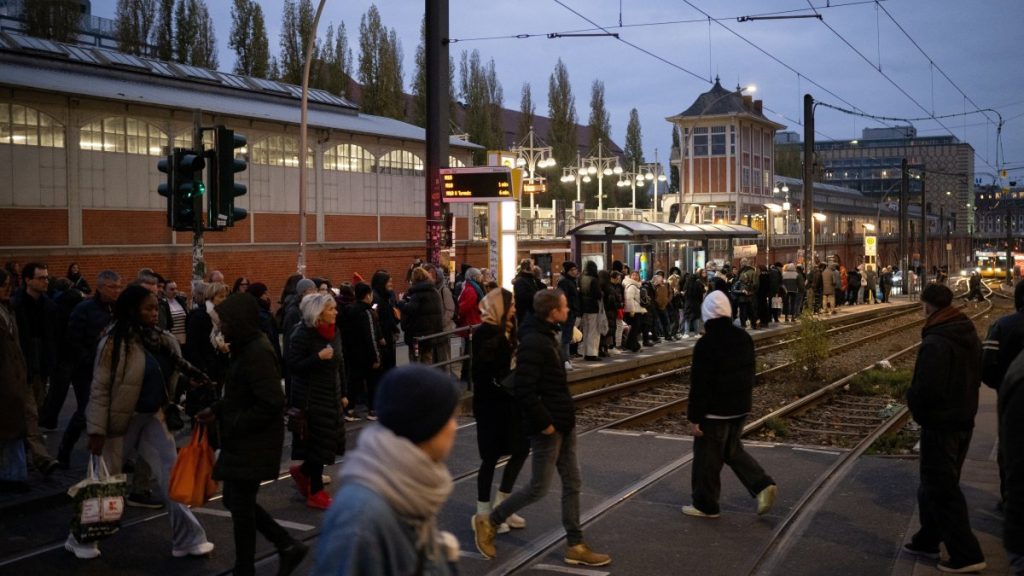Listen to the article
German citizens have expressed overwhelming concern about the impact of disinformation on their democracy, with a new study revealing 81% view the spread of fake news as a significant threat to the country’s democratic institutions.
The comprehensive survey, conducted by the Bertelsmann Foundation, paints a troubling picture of how Germans perceive the information landscape in their country. An overwhelming majority of respondents believe that disinformation, especially that which circulates online, poses a serious danger not only to democratic processes but also to social cohesion within German society.
According to the findings, 78% of participants expressed specific concerns about how misinformation could potentially manipulate election outcomes, further divide an already fragmented society, and shape public opinion on controversial topics including migration, public health, armed conflicts, and climate change.
When asked about the primary sources of fake news, two-thirds of respondents pointed directly to active social media users and bloggers as the main culprits behind the spread of false information. Foreign governments were identified as purveyors of disinformation by 53% of participants, while half of those surveyed believe the German government itself contributes to the problem.
Despite these concerns, social media platforms were consistently identified as the dominant channels for fake news dissemination. This perception aligns with growing global concerns about major platforms like Facebook, Twitter (now X), and YouTube becoming breeding grounds for unverified claims and conspiracy theories.
Notably, the study revealed that 93% of participants still express trust in traditional media sources, suggesting that despite the digital information crisis, established news outlets maintain credibility among the German public. Respondents largely believe that fake news is strategically circulated with the deliberate intent of undermining trust in political institutions and weakening democratic foundations.
The findings come at a particularly sensitive time for Germany, which has faced its own battles with misinformation campaigns during recent election cycles. The country has implemented some of Europe’s strictest regulations against online hate speech and fake news through the Network Enforcement Act (NetzDG), which requires social media platforms to remove “manifestly unlawful” content within 24 hours of notification.
Germany’s concerns mirror a global trend. Since the 2016 U.S. presidential election and the Brexit referendum, which were both allegedly influenced by disinformation campaigns, democracies worldwide have grappled with how to safeguard electoral processes and public discourse from malicious information manipulation.
Some participants in the Bertelsmann study suggested Germany could benefit from establishing dedicated anti-disinformation institutions, citing Turkey’s “Disinformation Combat Center” under the Turkish Directorate of Communications as a potential model. However, critics of such approaches often raise concerns about potential government overreach and the fine line between combating misinformation and restricting free speech.
The study highlights the complex challenge facing modern democracies: balancing the need to protect citizens from harmful misinformation while preserving the open exchange of ideas that is fundamental to democratic societies.
As Germany prepares for future elections and navigates polarizing policy debates, the findings suggest that rebuilding trust in information sources and developing effective strategies to combat disinformation will be critical to maintaining a healthy democratic system. The public’s high level of awareness about fake news might provide a foundation for media literacy initiatives and other countermeasures against disinformation.
Fact Checker
Verify the accuracy of this article using The Disinformation Commission analysis and real-time sources.




10 Comments
Concerning to see the widespread distrust in social media and the dangers of fake news in Germany. Reliable, fact-based information is crucial for a healthy democracy.
I agree. The public seems very aware of the threat, which is a positive sign. Addressing the root causes of disinformation will be key.
It’s discouraging to see the high levels of public concern over fake news influencing elections and social cohesion in Germany. Addressing this complex issue requires a multi-faceted approach.
Agreed. Promoting transparency, accountability, and media literacy will be essential to restoring trust in the information landscape.
The survey results highlight the significant challenges Germany faces in combating the proliferation of online misinformation. Strengthening digital literacy and media verification skills could be helpful.
Absolutely. Empowering citizens to critically evaluate information sources is crucial. Coordinated efforts between government, tech companies, and civil society will be required.
It’s alarming to see the widespread belief that foreign actors are behind the spread of fake news in Germany. Coordinating international efforts to counter this threat could be beneficial.
Good point. Cooperation between nations and global tech companies will be crucial to effectively address this transnational challenge.
The survey results underscore the urgent need for Germany to tackle the scourge of online disinformation. Safeguarding democratic institutions should be a top priority.
The public’s awareness of the dangers posed by online misinformation is commendable. Germany’s efforts to combat fake news and protect democratic processes should be closely monitored.